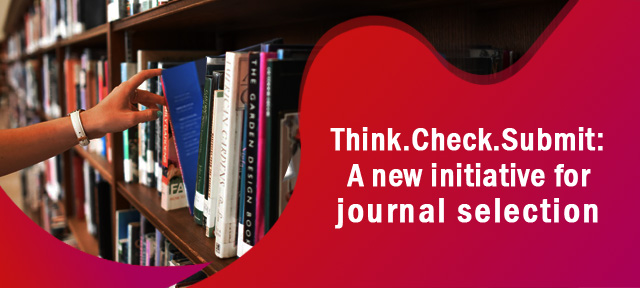Journal selection for article publication is a challenge for all academicians. Today, with the advent of digital services there are numerous options for authors. However, this has also given rise to the risk of spurious publishers who try to lure budding authors into unscrupulous practices.

Fake journals and publishers, known as predatory publishers because they are motivated only by greed instead of ethics, prey on budding authors. Spamming inboxes with lucrative offers, promising swift turnaround time, and promising high-grade journal publication to new scholars is how they lure unsuspecting authors. They usually charge a fee for publishing their paper in an open-access format, which often lacks rigorous peer-review process and editorial monitoring. Worse, there are reported cases where authors have been duped out of their money with no publication. The menace of predatory publishers has increased manifold in recent years affecting the entire academic sector.
Thankfully, several high-grade journals have come together to counter this menace. Think. Check. Submit. helps researchers identify trusted journals and publishers for their research. Through a range of tools and practical resources, this international, cross-sector initiative aims to educate researchers, promote integrity, and build trust in credible research and publications. The campaign has been produced with the support of a coalition from across scholarly communications in response to discussions about deceptive publishing. This includes bodies like Committee on Publication Ethics (COPE), Directory of Open Access Journals (DOAJ), INASP, ISSN International Centre, UKSG, Asian Council of Science Editors (ACSE), Springer Nature, SPARC Europe to name a few.
The initiative is a very user-friendly mechanism for authors. The program basically offers a detailed checklist for authors before they finalize to actually submit an article for a journal publication. The checklist has very simple suggestions, like a quick check with your friends and peers if they have heard about the journal, is the journal transparent about its editorial and review board, do they have any hidden charges for publication? Stronger tools like checking the registration of the journal with some of the contributing bodies like COPE, DOAJ, AOSPA is another fool-proof check for authenticity of high-grade journals.
The checklist includes ways to evaluate the credentials of any journal or the society/publisher behind it. It does not offer a definitive list of ‘approved’ titles, nor does it suggest authors on which journal best suits their purpose. Nonetheless, it is an important resource for authors to make sure the research they publish has maximum impact.
Another good aspect of the initiative is the listing of noted predatory journals which is more like a negative list for reference. Authors can simply check this list for any offers received from any journal if they feel the journal is suspect.
The service is a free service, and users can register to get notifications about the various initiative being taken against predatory publishing. This is a great help for authors to be updated on the various developments being undertaken to keep the publishing industry safe from such fraudsters.

